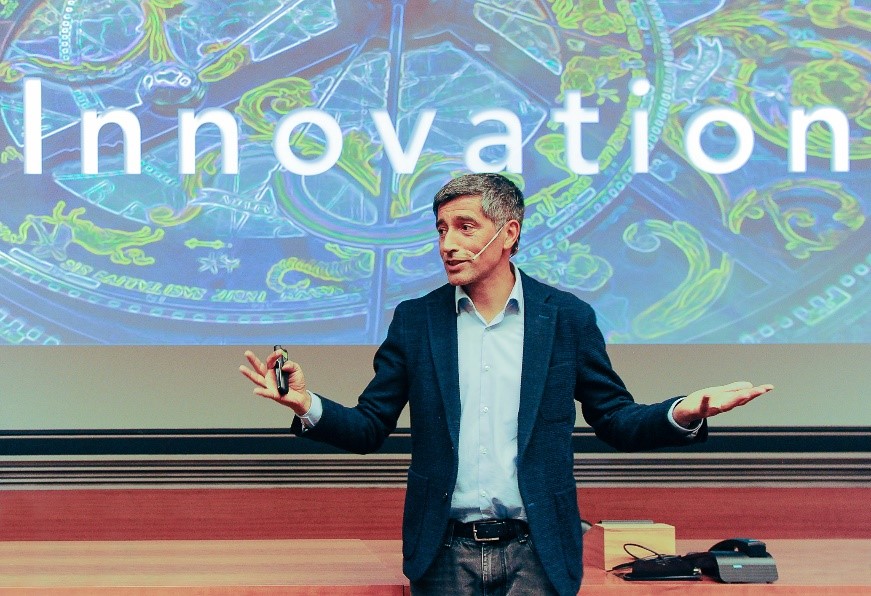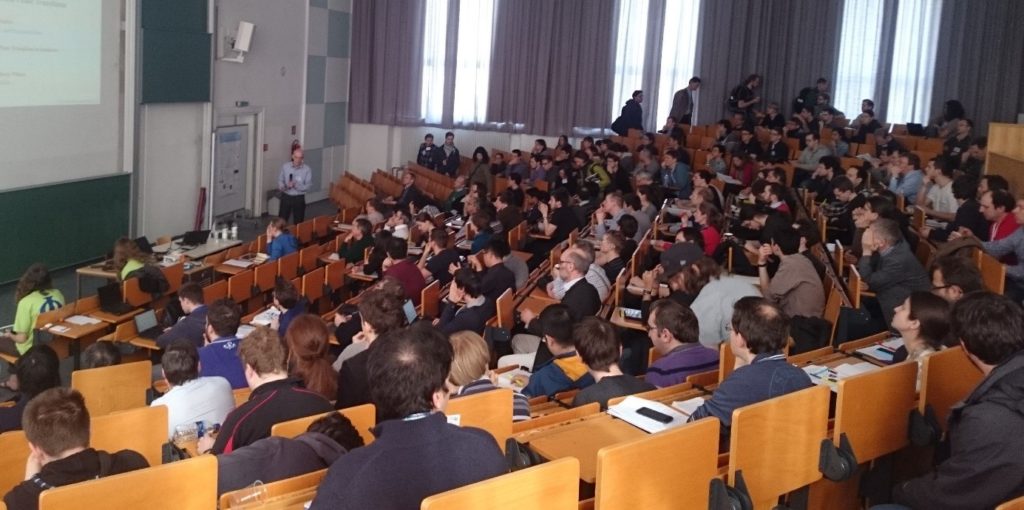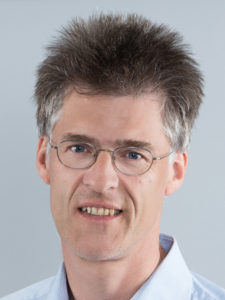The largest annual European Physics meeting was held in Berlin last month. For many students, it was the first time they presented their research in a major international science forum. ETH Ambassador, Manfred Fiebig, one of the organizers, shares his first-hand experience about this “professionally unprofessional” event.
Berlin, Sunday afternoon, 11 March 2018, a huge flock of physicists gathered. I headed directly to the main building of the University of Technology, where the annual meeting of the German Physical Society (DPG) opens today. This year it was a combined event with the European Physical Society, so with 6,400 people attending it was the largest meeting on physics worldwide after that of the American Physical Society.
Over the years, the DPG Spring Meeting evolved into an international forum designed particularly for young physicists: Master’s degree students or doctoral researchers come together and for many it represents their first opportunity to present in an international forum. One of the unique aspects of the DPG Spring Meeting is that it is usually organized in a “professionally unprofessional” way. Generally, one university hosts the event as a local organizer. With the entire meeting held on a campus there is an unmistakable atmosphere of a specific to a place. Visitors from the U.S., who are used to the relatively anonymous appearance of convention centers for meetings of this scale, always tell me how impressed they are by this.
What does all that have to do with ETH Zurich? Well, the university is represented at the Spring Meeting in manifold ways. My entire group attends and there are plenty of familiar faces from the Science City Campus (Hönggerberg). Speakers from ETH Zurich appear in all levels from contributed and invited talks to focus and plenary sessions. Even at the organizational level, ETH Zurich and Swiss science, in general, are present. The leader of the Division of Magnetism, for example, is from ETH and the Head of the Condensed-Matter Section, and hence the leader of the Spring Meeting, is a Swiss citizen.
There are two events worth mentioning. First, the opening plenary talk on Sunday evening focused on a topic in between science and society, an event actively supported by ETH. In 2018, Ranga Yogeshwar, possibly the most renowned science journalist and presenter in the German-speaking regions, spoke to a packed auditorium on “Next exit future.” (see first picture) Second was the annual symposium on a topic in magnetism that was organized entirely by doctoral students. It is an early opportunity to take on responsibility, an experience student organizers highly appreciate. It is also worth noting that an ETH Zurich professor established the PhD symposium at the DPG Spring Meeting.
For my group and for me, the 2018 meeting was again a productive and mind-refreshing event, not only professionally, but also because Berlin, as the venue, has a lot to offer in between all the science.
By Manfred Fiebig
About the author
After working in Dortmund, Tokyo, Berlin and Bonn, Manfred Fiebig is now Professor of Multifunctional Ferroic Materials in the Department of Materials at ETH Zurich. He heads a group of about 20 people from, presently, 12 different countries. His involvement with the DPG Spring Meeting began in 1991. He is now Head of the DPG Division of Magnetism.



